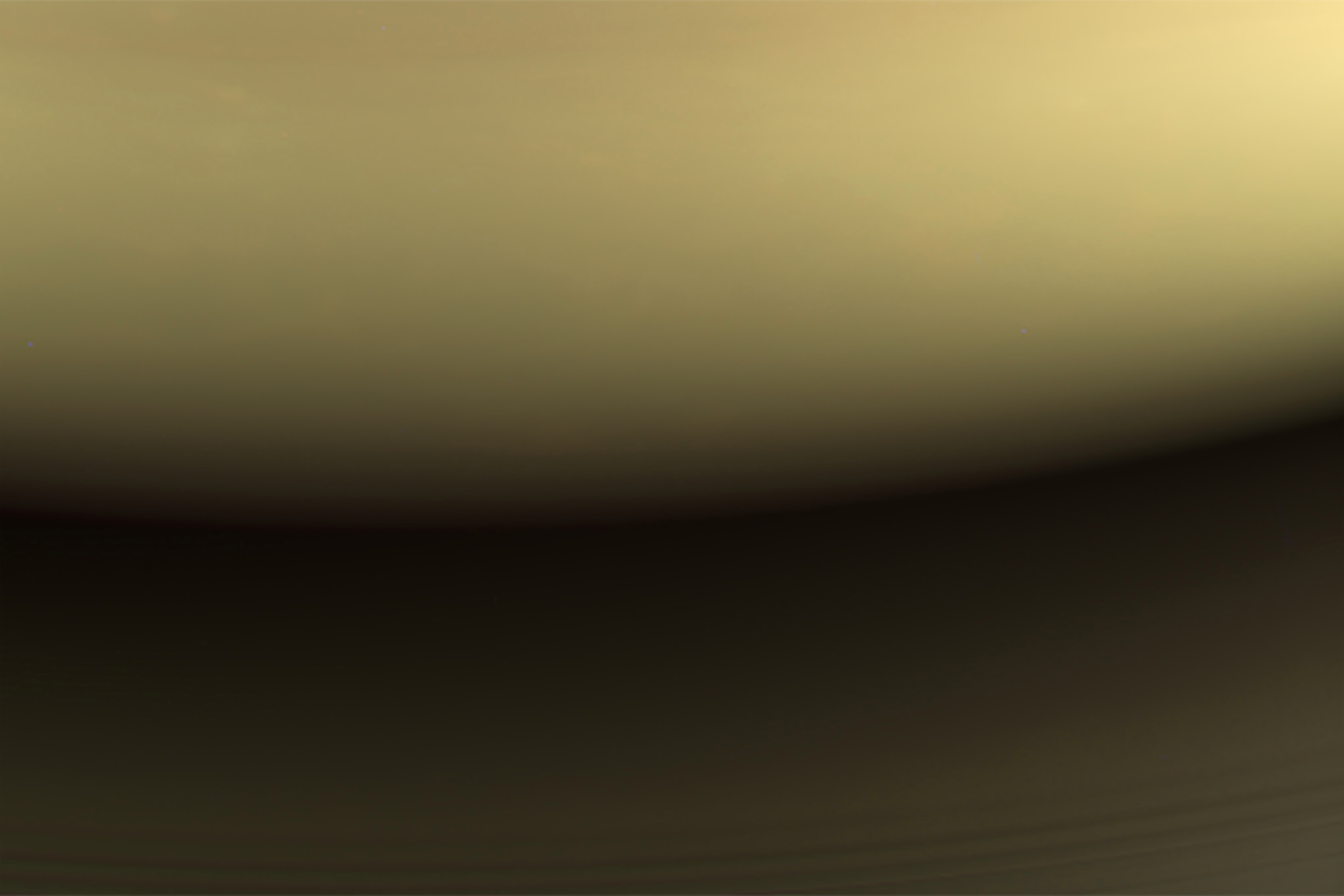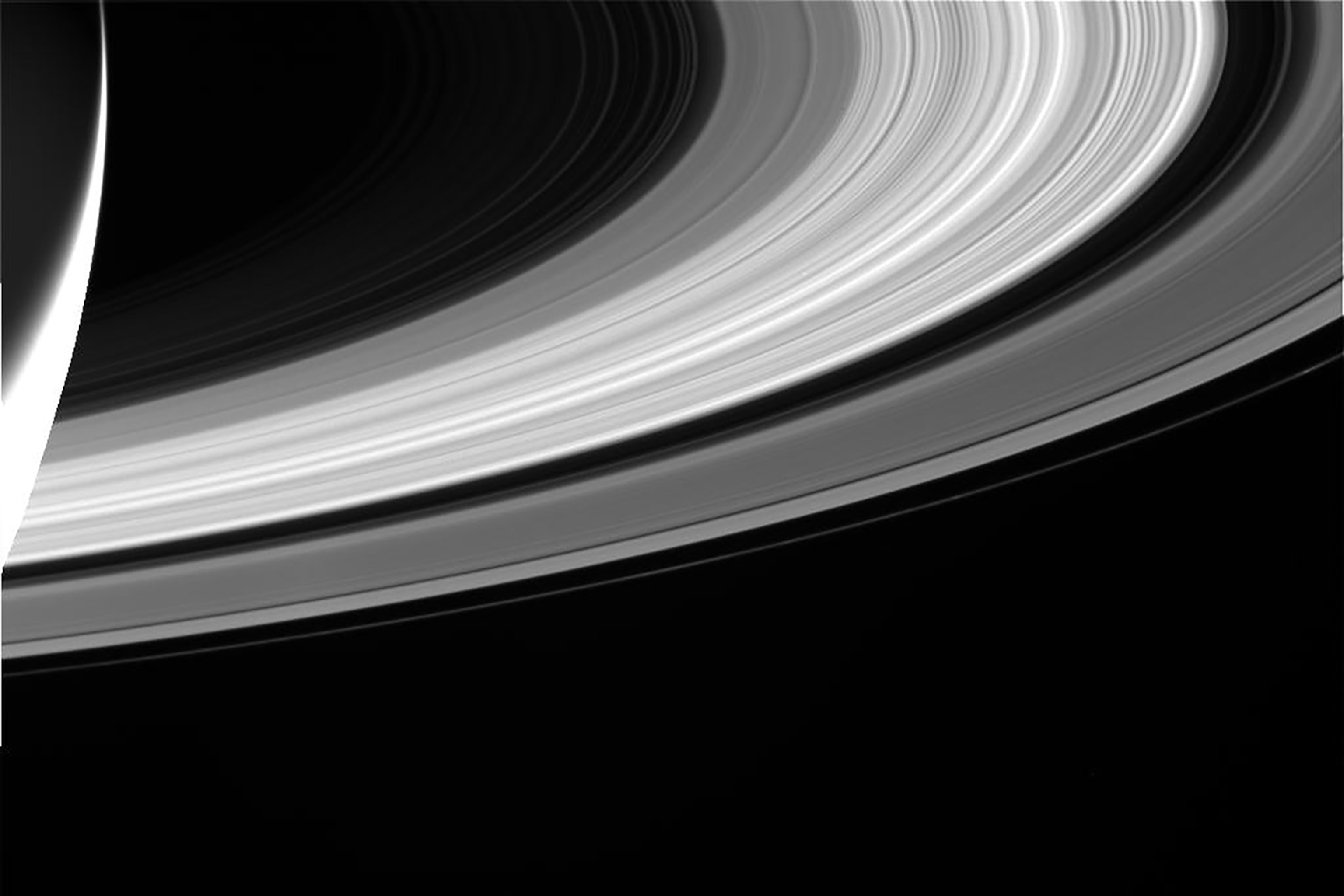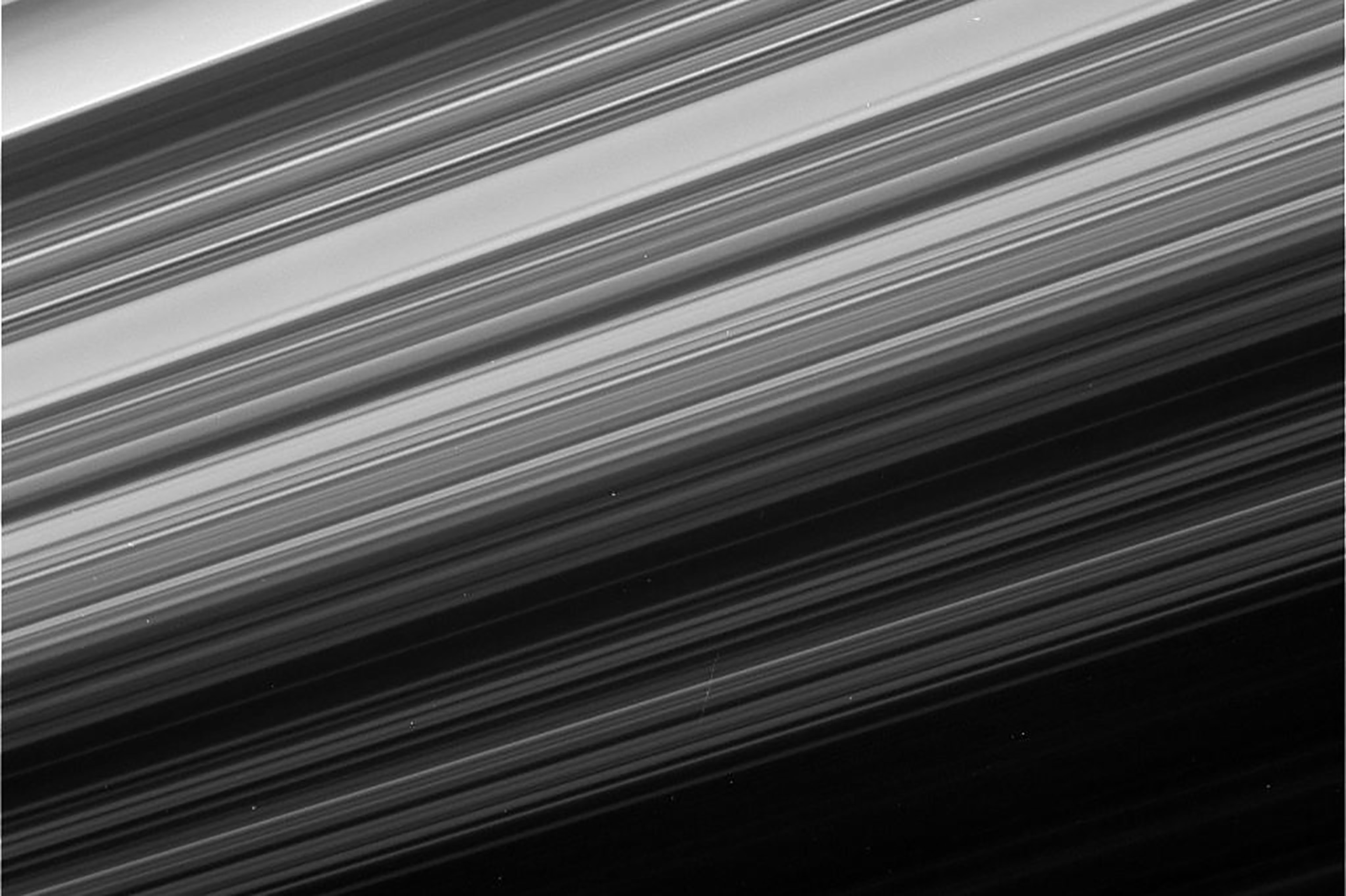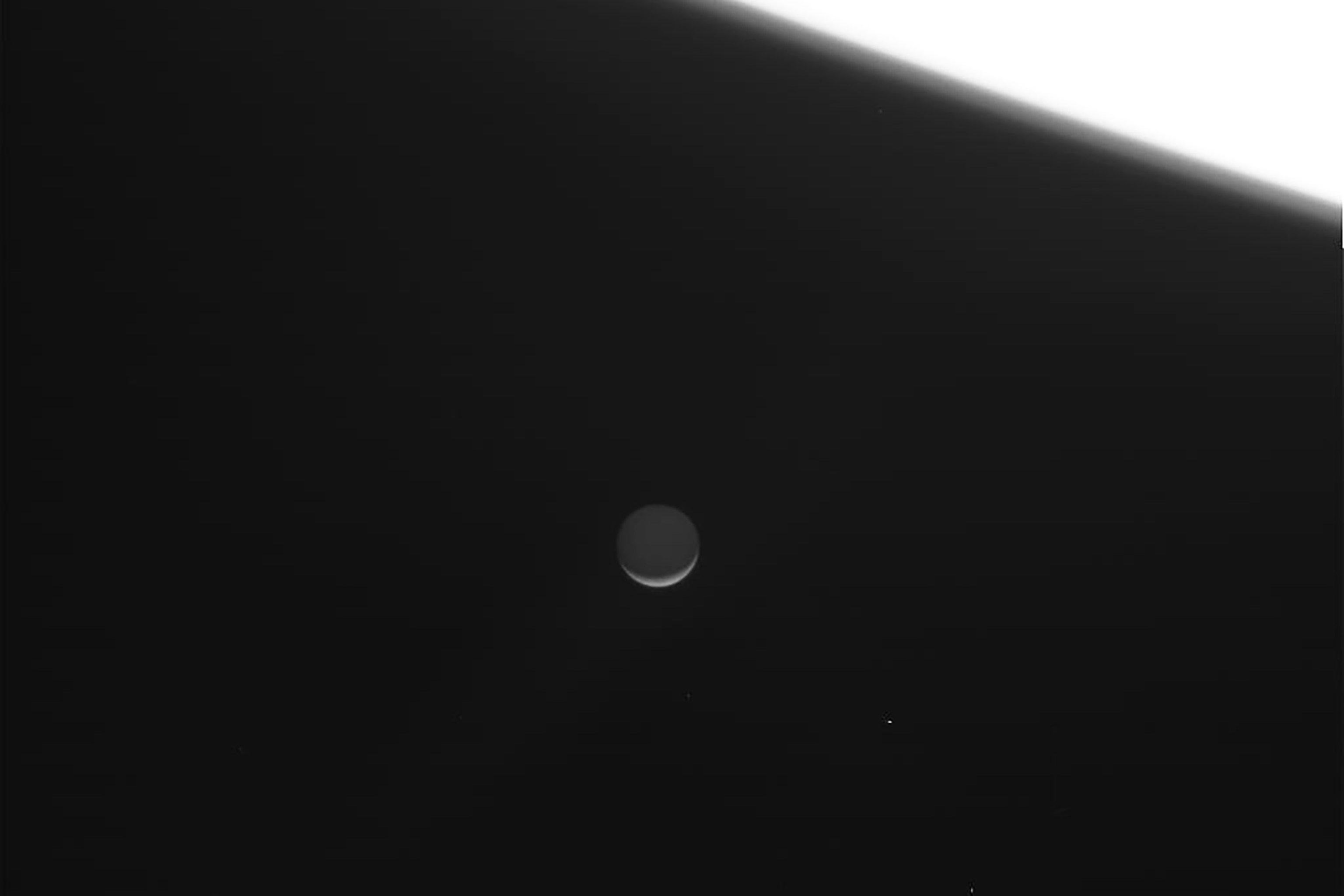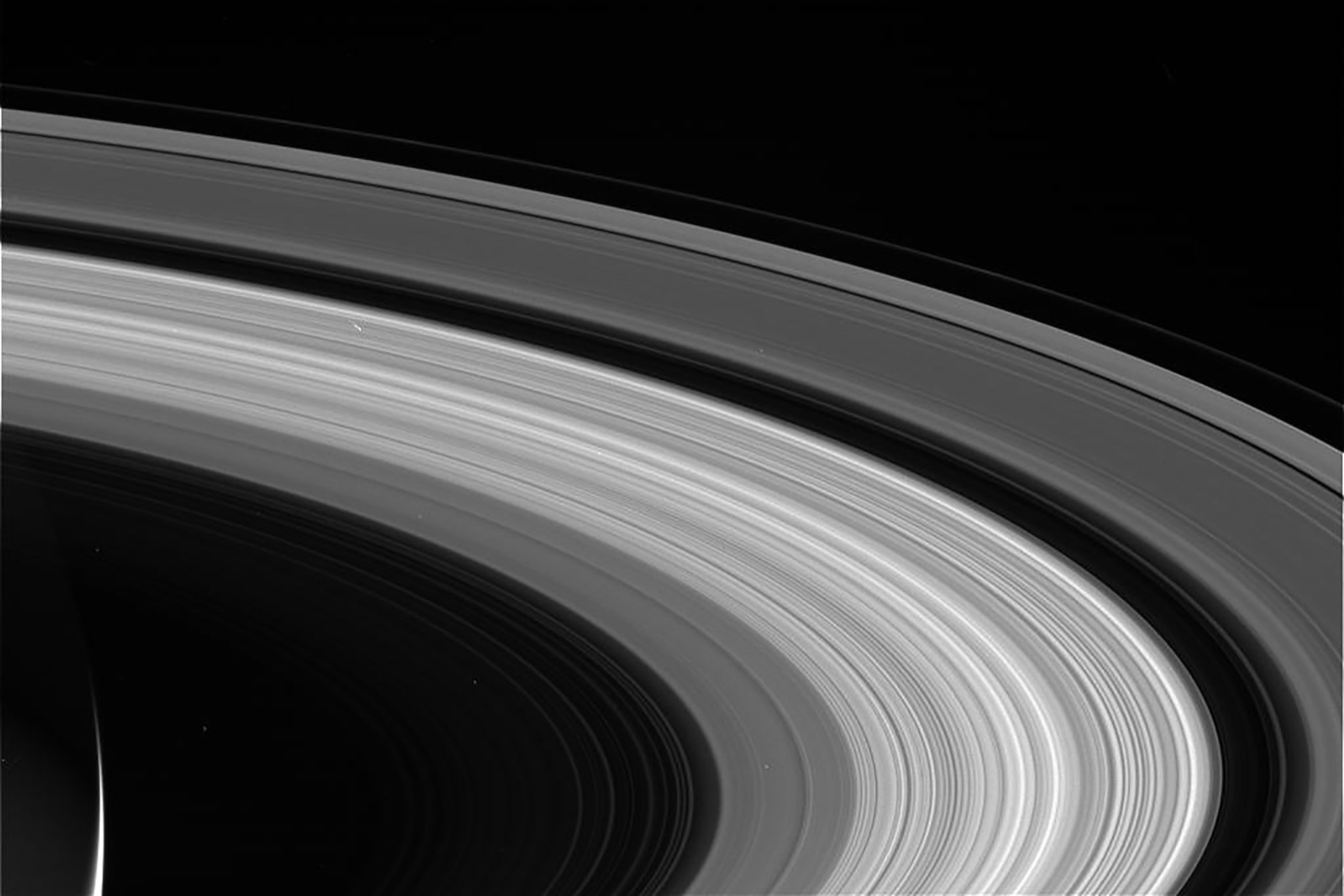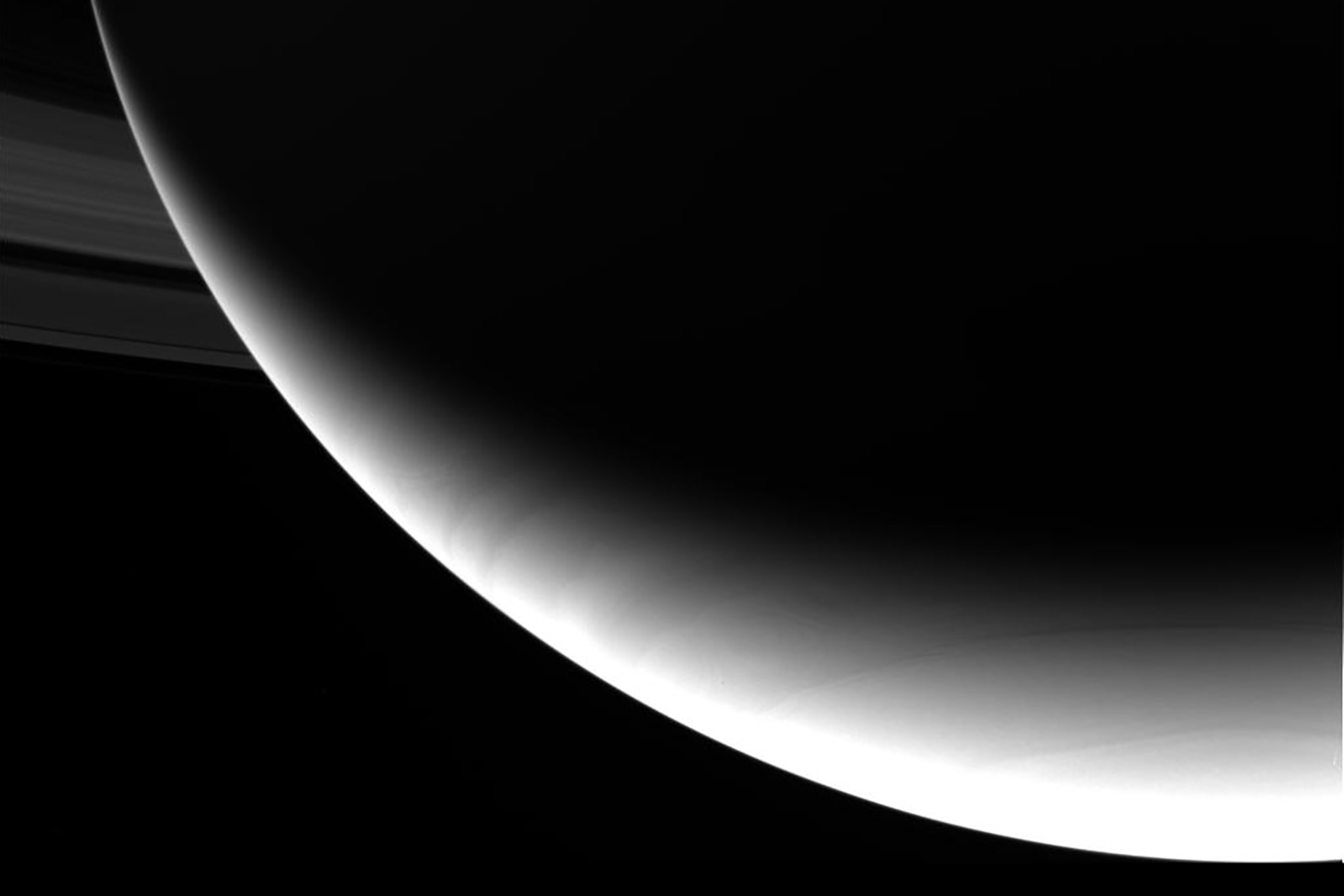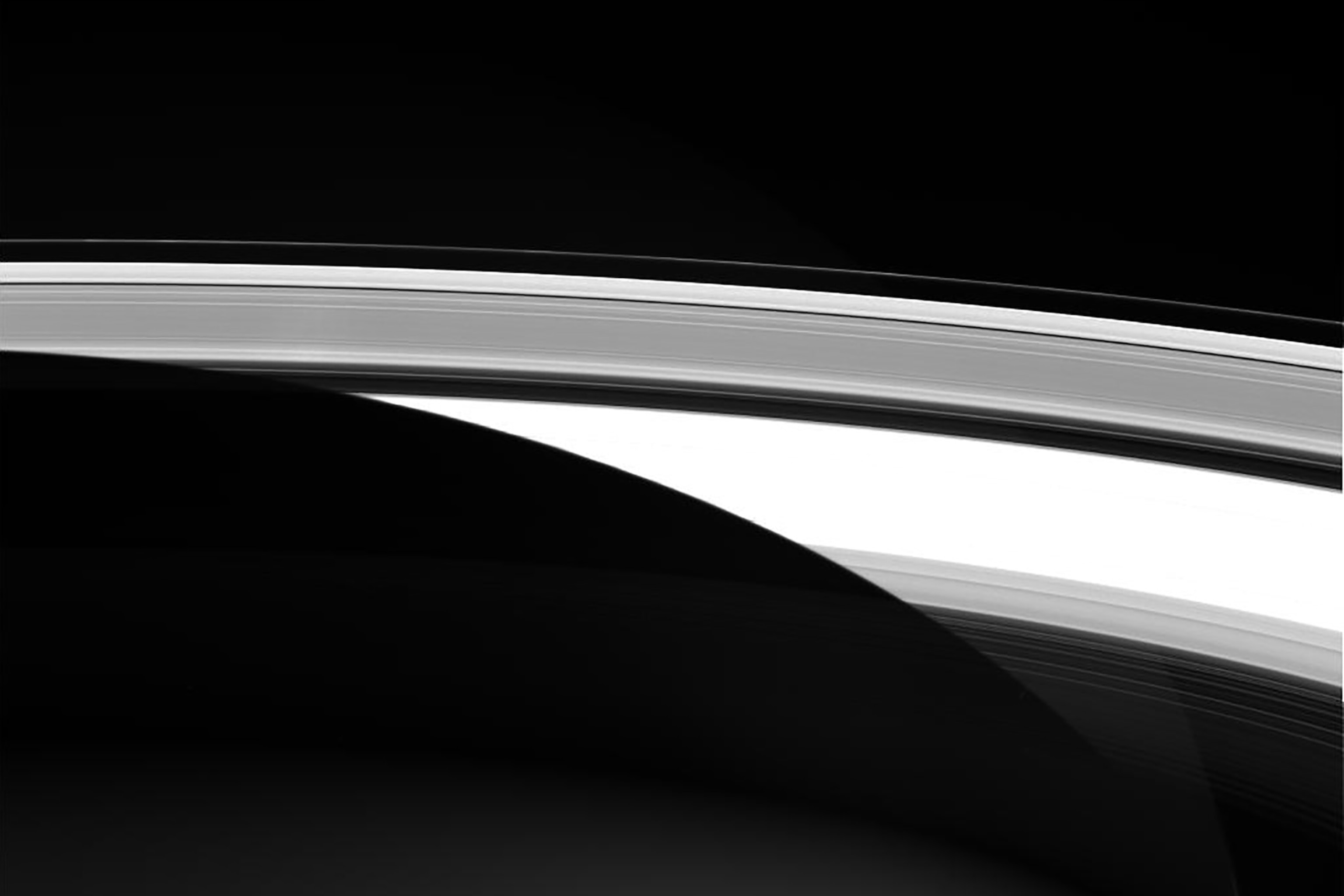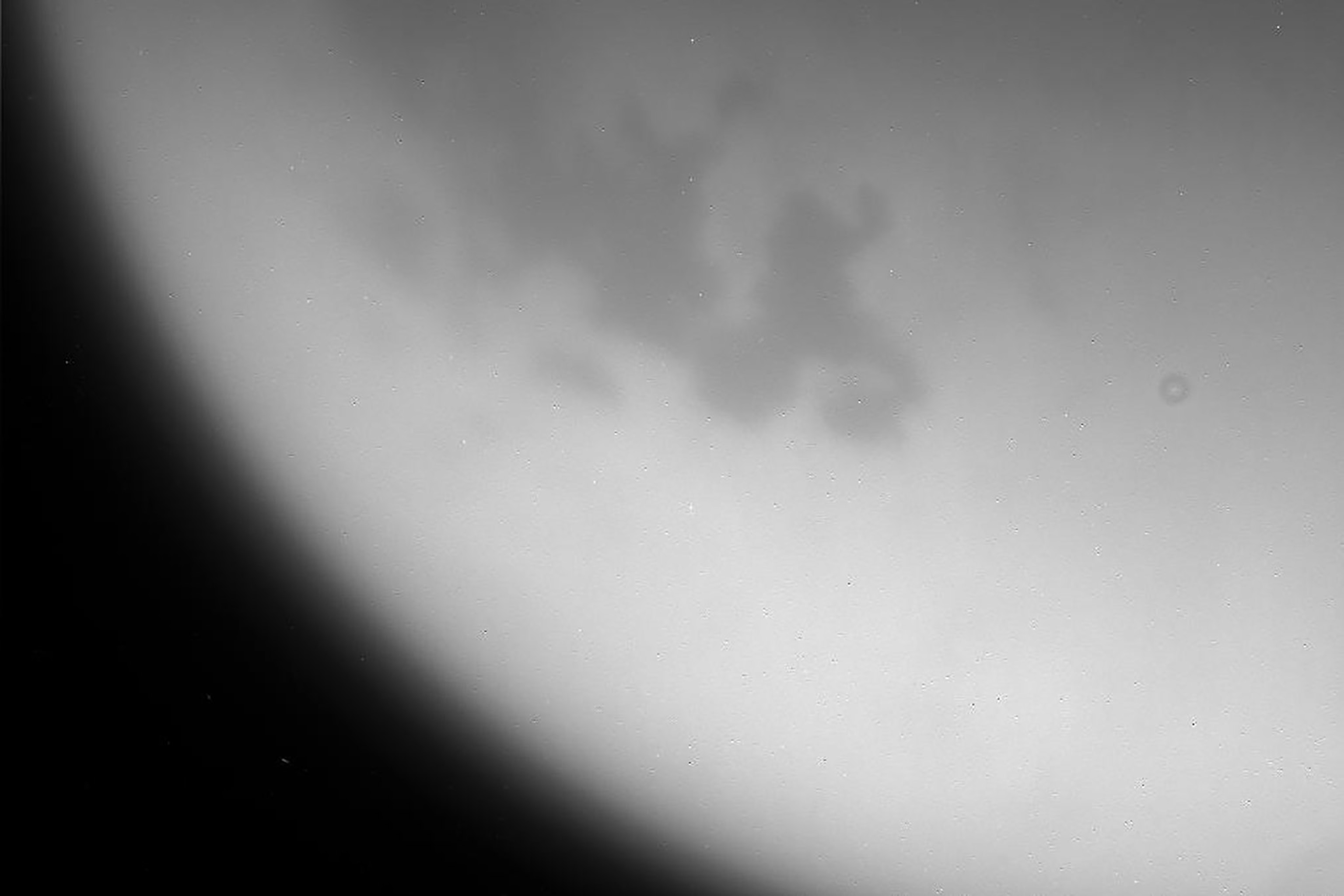
Right Stuff for Life Found on Small Saturn Moon
Data from a dead spacecraft suggest that this world may be the best place besides Earth for life as we know it.
On Saturn’s small moon Enceladus, perpetual fountains of alien seawater launch all sorts of curious stuff into space: water, salt, silica, and even simple carbon-containing compounds fly into the void—many of which are ingredients for life as we know it.
Now, scientists working with data from a dead spacecraft have discovered something even more potentially intriguing: heavy organic compounds containing hundreds of atoms arranged in rings and chains. These are the most complex organic molecules uncovered so far at Enceladus, and—sorry, Europa—they may make the moon the most promising place in our solar system to search for life beyond Earth.
“What we know today is telling us that Enceladus is an outstanding target to go look for life, and there may be microbes living in that ocean today,” says Cornell University’s Jonathan Lunine.
Discovered by the Saturn-exploring Cassini spacecraft in late 2005, icy jets erupting from Enceladus were a surprise to most scientists. Blasting through fissures in the south polar region, the jets contain seawater from a global ocean locked beneath the moon’s icy shell. Over the years, scientists have been able to study those jets and calculate the salinity and acidity of the ocean, identify ejected organic compounds such as methane, and determine that hydrothermal vents in the seafloor are providing heat and energy.
But these newly detected complex molecules spin that story forward and raise questions about whether they’re the work of lifeless chemistry or a sign pointing toward alien life.
“We cannot decide this hundred-million-dollar question, but it certainly shows that something is going on there, that complex organic chemistry is happening and that we can probe it from space,” says Frank Postberg of the University of Heidelberg, lead author on the paper describing the results today in the journal Nature.
“The moon freely delivers its organic inventory at high concentrations to the Cassini spacecraft. That’s just an amazing finding.”
Dust Detector
Though Cassini ended its exploration of the Saturn system by purposefully plunging into the ringed planet last September, the spacecraft’s enormous trove of data is stuffed with treasures waiting to be mined. (Explore Cassini’s grand tour of Saturn with our interactive.)
That includes information Cassini gathered while flying near the planet’s E ring. Thin and diaphanous, this ribbon is formed by dust and ice ejected by Enceladus. As Cassini skirted the E ring’s edge, some of its particles collided with an onboard instrument designed specifically to study cosmic dust and return information about its ingredients.
Postberg and his colleagues decided to look at data gathered during E ring flybys between 2004 and 2008, when the instrument was least contaminated by interplanetary dust from elsewhere in the solar system. Over 15 separate intervals, the spacecraft collected and studied about ten thousand dust particles. And in roughly one percent of those, Postberg and his colleagues identified the signatures of complex organic compounds.
“It was kind of a needle in a haystack problem,” he says.
Clinging to grains of water ice ejected by Enceladus, these heavy, carbon-containing molecules had been launched into space, just waiting for Cassini to come by and collect them upon impact. What’s more, the large compounds are likely fragments of even larger parent molecules that could weigh thousands of atomic mass units, Postberg says.
Floating Film
It’s the first time such heavy organics have been identified at Enceladus. Previously, Cassini detected lighter, gassy molecules such as methane and ethane, which contain one or two carbon atoms and a smattering of hydrogens; these molecules weigh in at around 15 atomic mass units.
But the newly detected molecules are as heavy as 200 atomic mass units and comprise anywhere between seven and 15 carbon atoms, handfuls of hydrogens, as well as nitrogen and oxygen.
“While we have found large molecules outside of Earth before, this is the first time they have been detected emerging from a liquid water ocean,” says Morgan Cable of NASA’s Jet Propulsion Laboratory, who looks for life in improbable places on Earth. (Recently, scientists also found complex organics on cold, dry Mars.)
“Many large organic molecules are not stable in liquid water for extended periods of time, so one of the next questions to ask is, where are these organic molecules coming from?”
Postberg and his colleagues think it’s likely that newly formed heavy organics rise to the top of the moon’s buried ocean and end up floating in a layer near areas where water erupts from fissures at the south pole. There, they stick to ice grains that are carried into space by bubbles rising from the seafloor to the surface.
“Our oceans have a thin film of organic molecules floating on top—think 'oil slick' but made up of life and its byproducts—that covers the ocean to a significant extent,” Cable says. “Now it seems that Enceladus has this too. But is it also made by life?”
Lying in Wait
Though tantalizing, this soup of carbon-containing riches is not an indication of life yet. Many processes could have crafted such structures in the absence of extraterrestrial metabolisms.
“Are they being made by abiotic processing at the bottom of the ocean, where the rock and water meet, or are they the waste products of microbes? That’s the question, with a capital Q,” Lunine says.
Fundamentally, the molecular soup tells scientists that the environment beneath Enceladus’s icy shell is capable of extremely complex chemistries. Whether those reactions are completely independent of life and fueled simply by chemistry and geology, are part of a prebiotic mix from which life could one day emerge, are currently building alien microbes, or are perhaps the waste products of extraterrestrial lifeforms already living in the Enceladian sea is still unknown.

“We should try to go back to Enceladus as soon as we can,” Lunine says. “It’s waiting for us. It’s not going anywhere, and think of all that microbial poo that could be spewed out into space and analyzed today.”
The instruments needed to answer these questions already exist—all it takes is a return trip. One such mission, designed by Lunine and his colleagues and called the Enceladus Life Finder, could have flown in the near future. But NASA declined to fund the project.
Soon, though, a fleet of spacecraft will be sent to explore another icy ocean world: Europa, which orbits Jupiter. Scientists don’t yet know what kinds of chemistry take place in that alien sea, or if the ingredients needed for life as we know it are similarly abundant.
For now, Enceladus will have to wait. And so will scientists, who will continue hoping that maybe someday soon, they won’t need to mine archival data to answer one of humanity’s most pressing questions, and instead coax this promising astrobiological target into revealing its secrets in real time.

